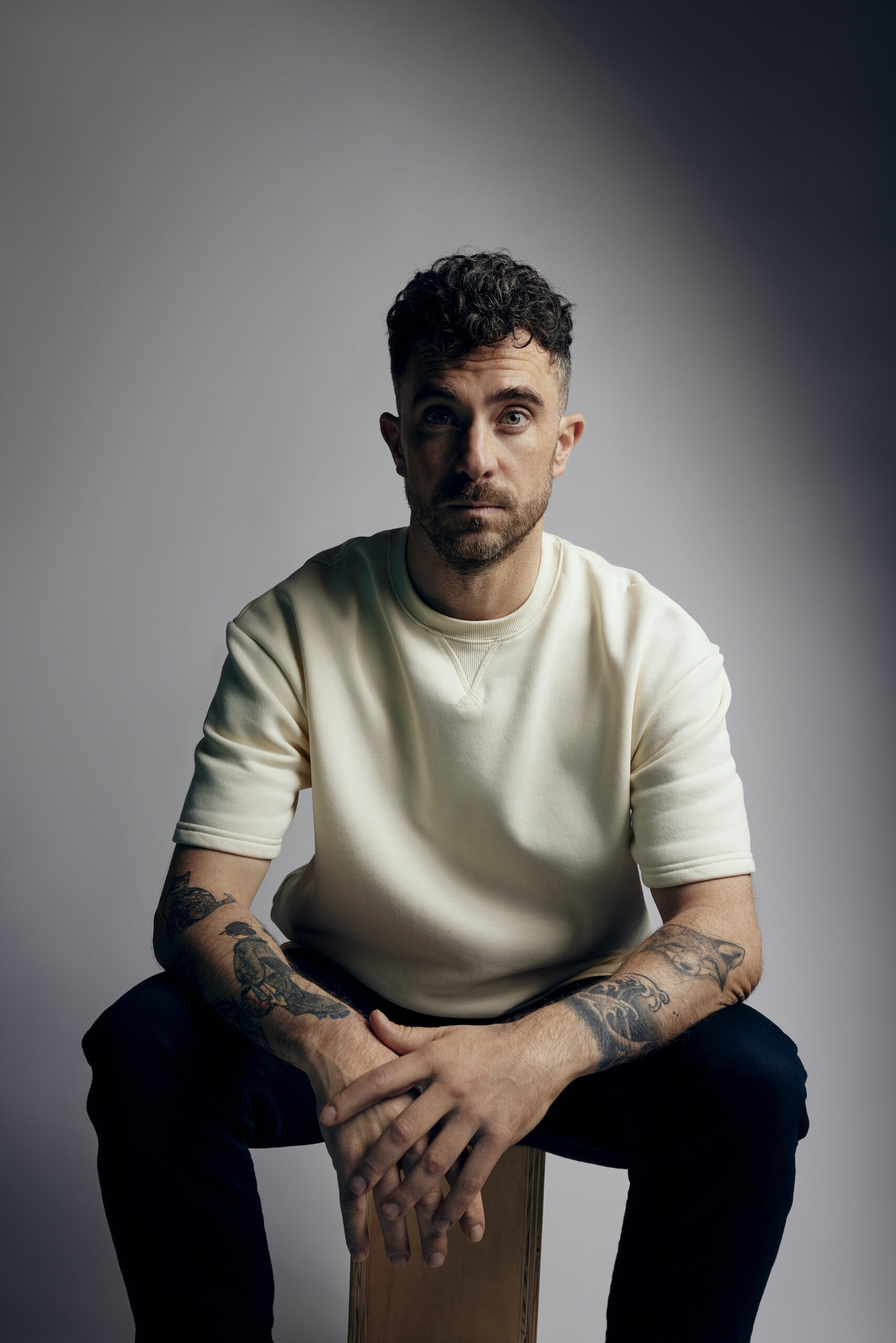Fatma Said, Tim Allhoff, Lafayette Club review - from Fauré to the Middle East and back | reviews, news & interviews
Fatma Said, Tim Allhoff, Lafayette Club review - from Fauré to the Middle East and back
Fatma Said, Tim Allhoff, Lafayette Club review - from Fauré to the Middle East and back
Eclectic programme shows all the colours and textures of Said's wonderful rich voice

It’s proving to be an extraordinary year for Cairo-born soprano Fatma Said, one of the most exciting musicians to bridge the gap between the Arab and the Western classical music worlds. This April she made her debut at the Carnegie Hall, while as artist in residence at the Wiener Konzerthaus she will be collaborating with musicians including Marin Alsop and the acclaimed Polish countertenor Jakub Jozef Orlinski.
Last night, however, in the second concert she has performed for Through the Noise, she told the audience that “When I looked back at my year this was absolutely one of my highlights”. Last time she’d appeared for the organisation in the Oslo club in Hackney, this time she was singing at the new Lafayette Club at Kings Cross and she took full advantage of the setting to deploy a repertoire that was as heartfelt as it was experimental.
She began on a traditional note with Fauré’s "Après un Rêve", one of his early works written in the 1870s. It’s a beautiful piece and not a difficult one but Said used it to demonstrate all the colours and textures of her wonderful, rich voice. In the lower notes, there was a sense of dark silkiness while as she reached the higher range the notes shimmered with ghostly silver. It was a hypnotic beginning to the joyfully eclectic programme to come.
We remained in France but travelled forward 70 years for her delivery of Poulenc’s swooping, lyrical "Les chemins de l’amour". Here, at the same time as revelling in the sense of light and weightlessness in the more effervescent passages she also played with the song’s elasticity, drawing out the pauses for full humorous effect.
 Her accompanist for the evening was the Munich-based pianist and composer Tim Allhoff (pictured right by Maximilian Koenig), one of the musicians she collaborated with for her most recent album, Kaleidoscope. Allhoff brought his own star quality to proceedings, displaying a wit and virtuoso versatility that heightened the sense of sophisticated fun. That started to come to the fore in Said’s performance of "Ne Me Quitte Pas" from Les Parapluies de Cherbourg, previously sung by Catherine Deneuve (in the film) and Marianne Faithfull among others. While Said’s voice excavated all the velvety longing and regret from the music, Allhoff brought a subtle modern jazz inflection to the cascading accompaniment, injecting a gentle dynamism into the nostalgia.
Her accompanist for the evening was the Munich-based pianist and composer Tim Allhoff (pictured right by Maximilian Koenig), one of the musicians she collaborated with for her most recent album, Kaleidoscope. Allhoff brought his own star quality to proceedings, displaying a wit and virtuoso versatility that heightened the sense of sophisticated fun. That started to come to the fore in Said’s performance of "Ne Me Quitte Pas" from Les Parapluies de Cherbourg, previously sung by Catherine Deneuve (in the film) and Marianne Faithfull among others. While Said’s voice excavated all the velvety longing and regret from the music, Allhoff brought a subtle modern jazz inflection to the cascading accompaniment, injecting a gentle dynamism into the nostalgia.
Following the French dominated opening we moved into the Arab section of the concert – “Are there any Arabs in the house?” Said asked to responding whoops. First she sang the Egyptian song "Bahlam Maak", composed by Hani Shenouda, in which the singer dreams of facing the challenges of a voyage on a ship with the man she loves. Here, through gentle tilts of the voice, she gave a full sense of the shifts in mood as the singer imagines each possible scenario. This was followed by "Sahar El Layali" by Elias Rahbani, a more serpentine, almost hallucinatory work in which the rasping vowels resonated hauntingly round the auditorium.
A particularly powerful moment came when Said performed "Ad Ay Sa’ab", a piece written specially for her by Tamer Hussein and inspired by the famous Argentinian tango-style song "El Choclo" composed by Angel Villoldo. The song is an address to hardworking women and girls across the Arab world, and as it rang out across the crowd it was clear that Said’s proud, vigorous delivery came from the heart.
Allhoff’s technically sparkling jazz improvisation on the Beatles’ "Blackbird" provided a hypnotic interlude, then we were into the American section of the evening, kicking off with William Bolcom’s "Song of Black Max" from his Cabaret Songs written in 1978. In this Said more than demonstrated how her comedic timing more than matches her musical timing. Afterwards we were treated to Gershwin: "The Man I Love", "Summertime" and "By Strauss". Of these the first was the strongest, given a full shimmering sensual delivery, and though "Summertime" wasn’t a definitive rendition, it wonderfully showed her effortless range.
By this point we were very much in cabaret mode – and after another interlude from Allhoff performing a work from his MORLA album, the evening rounded off "What I Did for Love" from A Chorus Line, "Misty" by Erroll Garner and "I Love a Piano" by Irving Berlin. Probably it says all you need to know about the maturity and resonance of Said’s voice that in "Misty", when she sang “I’m as helpless as a kitten up a tree”, she sounded more like a lioness. This woman was the first Egyptian soprano to perform at Milan’s great Teatro All Scala – in this more intimate setting there was a real sense of a serious talent enjoying kicking up her heels. It seems there's little doubt that Through the Noise will be seeing more appearances from Said in the future.
rating
Explore topics
Share this article
The future of Arts Journalism
You can stop theartsdesk.com closing!
We urgently need financing to survive. Our fundraising drive has thus far raised £49,000 but we need to reach £100,000 or we will be forced to close. Please contribute here: https://gofund.me/c3f6033d
And if you can forward this information to anyone who might assist, we’d be grateful.

Subscribe to theartsdesk.com
Thank you for continuing to read our work on theartsdesk.com. For unlimited access to every article in its entirety, including our archive of more than 15,000 pieces, we're asking for £5 per month or £40 per year. We feel it's a very good deal, and hope you do too.
To take a subscription now simply click here.
And if you're looking for that extra gift for a friend or family member, why not treat them to a theartsdesk.com gift subscription?
more Classical music
 Kempf, Brno Philharmonic, Davies, Bridgewater Hall, Manchester review - European tradition meets American jazz
Bouncing Czechs enjoy their Gershwin and Brubeck alongside Janáček and Dvořák
Kempf, Brno Philharmonic, Davies, Bridgewater Hall, Manchester review - European tradition meets American jazz
Bouncing Czechs enjoy their Gershwin and Brubeck alongside Janáček and Dvořák
 Solomon, OAE, Butt, QEH review - daft Biblical whitewashing with great choruses
Even a top soprano and mezzo can’t make this Handel paean wholly convincing
Solomon, OAE, Butt, QEH review - daft Biblical whitewashing with great choruses
Even a top soprano and mezzo can’t make this Handel paean wholly convincing
 Two-Piano Gala, Kings Place review - shining constellations
London Piano Festival curators and illustrious friends entertain and enlighten
Two-Piano Gala, Kings Place review - shining constellations
London Piano Festival curators and illustrious friends entertain and enlighten
 Echo Vocal Ensemble, Latto, Union Chapel review - eclectic choral programme garlanded with dance
Beautiful singing at the heart of an imaginative and stylistically varied concert
Echo Vocal Ensemble, Latto, Union Chapel review - eclectic choral programme garlanded with dance
Beautiful singing at the heart of an imaginative and stylistically varied concert
 Scott, Irish Baroque Orchestra, Whelan, RIAM, Dublin review - towards a Mozart masterpiece
Characteristic joy and enlightenment from this team, but a valveless horn brings problems
Scott, Irish Baroque Orchestra, Whelan, RIAM, Dublin review - towards a Mozart masterpiece
Characteristic joy and enlightenment from this team, but a valveless horn brings problems
 Classical CDs: Voice flutes, flugelhorns and froth
Baroque sonatas, English orchestral music and an emotionally-charged vocal recital
Classical CDs: Voice flutes, flugelhorns and froth
Baroque sonatas, English orchestral music and an emotionally-charged vocal recital
 Kanneh-Mason, Britten Sinfonia, Shave, Milton Court - a grin and a big beaming smile
A pair of striking contemporary pieces alongside two old favourites
Kanneh-Mason, Britten Sinfonia, Shave, Milton Court - a grin and a big beaming smile
A pair of striking contemporary pieces alongside two old favourites
 theartsdesk at the New Ross Piano Festival - Finghin Collins’ musical rainbow
From revelatory Bach played with astounding maturity by a 22 year old to four-hand jazz
theartsdesk at the New Ross Piano Festival - Finghin Collins’ musical rainbow
From revelatory Bach played with astounding maturity by a 22 year old to four-hand jazz
 First Person: Manchester Camerata's Head of Artistic Planning Clara Marshall Cawley on questioning the status quo
Five days of free events with all sorts of audiences around Manchester starts tomorrow
First Person: Manchester Camerata's Head of Artistic Planning Clara Marshall Cawley on questioning the status quo
Five days of free events with all sorts of audiences around Manchester starts tomorrow
 Goldscheider, Brother Tree Sound, Kings Place review - music of hope from a young composer
Unusual combination of horn, strings and electronics makes for some intriguing listening
Goldscheider, Brother Tree Sound, Kings Place review - music of hope from a young composer
Unusual combination of horn, strings and electronics makes for some intriguing listening

Add comment